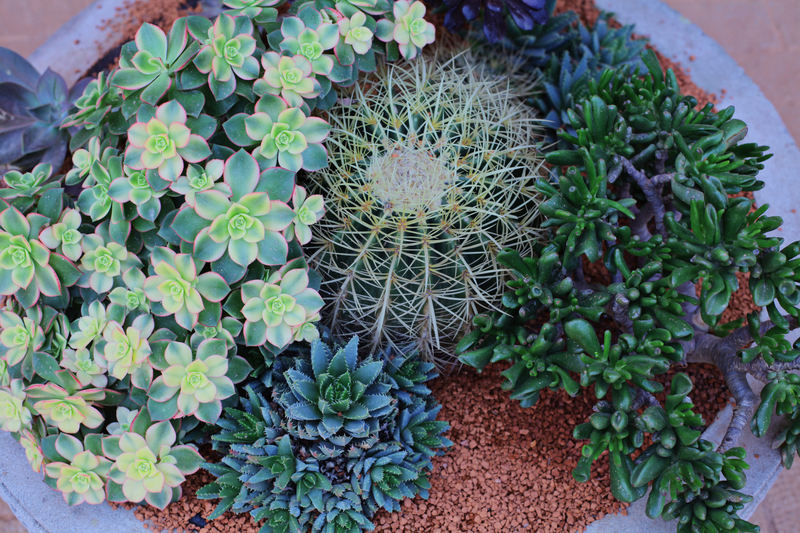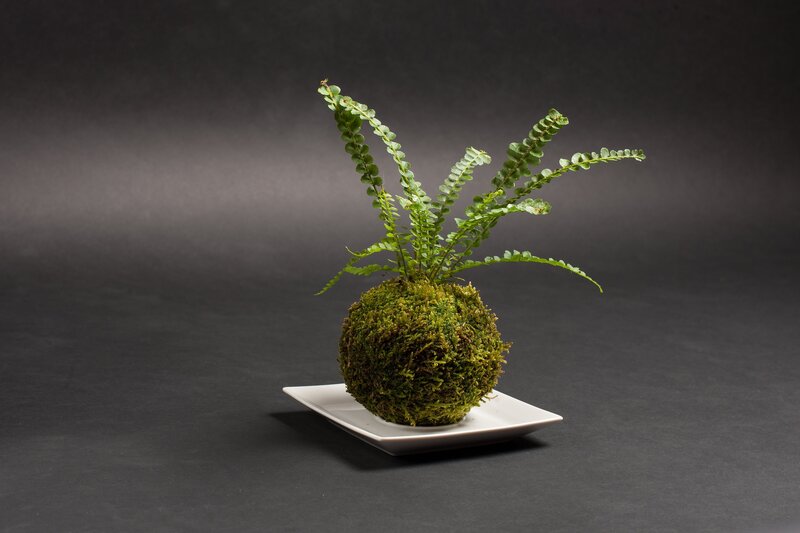Become a Pro at Winterizing Your Garden Space
Posted on 24/05/2025
Become a Pro at Winterizing Your Garden Space
Do you want to safeguard your green space during the colder months? As the temperature drops and winter approaches, it's essential to protect your plants and garden structures. In this comprehensive guide, we'll walk you through how to become a pro at winterizing your garden space so it bursts back to life in spring! Whether you're a seasoned gardener or a beginner just starting out, you'll find actionable tips and expert insights here.

Why Is Winterizing Your Garden Space Important?
When you winterize your garden space, you're not just preparing for the cold - you're investing in the long-term health and productivity of your landscape. Unprotected plants, soil, and equipment are susceptible to frost, snow, ice, and wind. Winterizing helps to:
- Protect your plants from harsh weather
- Preserve soil nutrients
- Prevent pests and diseases
- Save money on plant replacements
- Streamline spring gardening tasks
Now, let's dive into expert strategies so you can confidently prepare your garden for winter.
Step-by-Step Guide to Winterizing Your Garden
1. Assess Your Garden's Unique Needs
Every garden is different! Start by taking a thorough look at your outdoor space. Note which plants are sensitive to cold, which ones are hardy, and which garden structures or tools will need storing or protection. Make a checklist so you don't overlook anything during the winterization process.
2. Clean Up Garden Beds and Borders
Removing dead or diseased foliage is key to winter garden maintenance. Diseases and pests often overwinter in plant debris. Here are practical steps:
- Clear out annuals and spent vegetable plants.
- Cut back dead perennials, leaving 3-6 inches above ground for insulation.
- Remove fallen fruits and leaves that harbor diseases.
Tip: Avoid composting diseased material!
3. Mulch for Insulation and Moisture
Mulching is a cornerstone of winterizing garden beds. It keeps soil temperatures stable and protects roots from freeze-thaw cycles. Apply 2-4 inches of organic mulch, such as:
- Shredded bark or wood chips
- Straw or pine needles
- Composted leaves
Mulch not only insulates - it feeds your soil as it decomposes!
4. Protect Perennials, Shrubs & Trees
Extra care is needed for delicate or newly planted specimens. Use these techniques to winterproof your garden landscape:
- Wrap tree trunks with burlap or tree wrap to prevent frost cracking and rodent damage.
- Build windbreaks for exposed shrubs using stakes and burlap.
- Place extra mulch or straw around the base of rose bushes and tender perennials.
Pro Tip: Avoid wrapping too tightly--plants and trees still need to breathe!
5. Prepare the Lawn
Your lawn needs winter love, too! Here's how to get it ready:
- Continue cutting grass until growth stops, lowering your mower's height slightly for the last cut.
- Rake up fallen leaves to prevent mold and bare spots.
- Apply a fall or winter fertilizer rich in potassium and phosphorus.
Aerate if compaction is an issue, and overseed any thin spots to jumpstart spring growth.
6. Harvest & Store Your Remaining Vegetables
For winter vegetable garden prep:
- Harvest any remaining crops and store according to variety (cool, dry place for root veggies).
- Pull up spent plants and compost if disease-free.
- Plant cover crops (like clover or rye) to enrich soil over winter.
7. Empty and Store Hoses & Irrigation Equipment
Water expands as it freezes, so avoid costly damage:
- Drain and coil hoses; store indoors if possible.
- Shut off outdoor faucets and irrigation systems.
- Empty rain barrels and store upside down.
*Even sturdy equipment can crack or split in freezing temperatures!*
8. Maintain Garden Tools and Machinery
Don't forget your tools! Extend their life with end-of-season care:
- Clean dirt and sap from blades and handles.
- Sharpen and oil cutting tools.
- Store powered equipment with empty fuel tanks.
- Hang or store tools indoors to prevent rust.
*Proper care means your tools are ready for action in spring!*
9. Provide Shelter and Food for Wildlife
Help local fauna weather the chill in harmony with your winter garden preparation:
- Hang bird feeders and keep them stocked.
- Provide fresh (unfrozen) water daily.
- Leave sections of your garden a little 'wild' with seed heads and brush for winter shelter.
Birds and beneficial insects help control pests next spring!
Winterizing Container Gardens & Raised Beds
Containers are more vulnerable to cold harm. Here's how to winterize container gardens and raised beds:
- Move pots close to the house or into a shed/garage.
- Wrap pots with burlap or bubble wrap for insulation.
- Water well before the ground freezes to ensure roots stay hydrated.
- Group containers together to reduce exposure.
Raised beds benefit from an extra layer of mulch or floating row covers for protection.
Eco-Friendly Tips for Winterizing Your Garden Space
Go green while you protect your greens! Consider these eco-wise steps:
- Choose biodegradable or reusable materials for wrapping and mulching.
- Compost garden waste instead of burning it.
- Use organic fertilizers and pesticides.
- Collect and store rainwater for spring use.
*Winterizing your garden can be sustainable and environmentally friendly!*
What to Avoid When Winterizing Your Garden
- Don't over-mulch; it can cause rot and suffocate plants.
- Avoid pruning in late fall (except for removing dead or diseased wood)--it can stimulate new, vulnerable growth.
- Never use plastic directly on plants--it traps moisture and causes rot.
- Don't ignore weather forecasts--early cold snaps happen!
Spring Benefits: Reaping the Rewards of Proper Winterization
When you become a pro at winterizing your garden, you'll be amazed at the payoff. Here's what to expect come spring:
- Lush, healthy perennials and shrubs bouncing back stronger than ever.
- Fewer winter injuries and diseases in trees and beds.
- Smoother, faster spring planting and cleanup.
- Money saved on plant replacements and repair.
- Rich, nutritious soil ready to nurture new growth.

Frequently Asked Questions about Garden Winterization
When is the best time to winterize garden space?
Begin winterizing your garden space as soon as nighttime temperatures hover near freezing--usually late fall. Don't wait until after the first hard frost!
Do all plants need to be covered in winter?
No--hardy, well-established perennials often survive unprotected, while tender, new, or exotic plants need additional insulation.
Is it okay to leave some leaves in the garden?
Yes! Leaves can provide natural insulation and habitat for beneficial insects--just don't layer them too thick (which can smother plants).
Should I water my garden in winter?
If conditions are dry and the ground isn't frozen, watering deeply before a freeze can help plants survive. Avoid watering once soil freezes.
Can I plant anything in winter?
Certain bulbs and hardy shrubs/trees can be planted in late fall or early winter to establish roots before spring. Consult your local extension service for specific recommendations.
Final Thoughts: Mastering the Art of Winterizing Your Garden Space
Winterizing your garden isn't just a seasonal chore--it's crucial for the ongoing vitality of your entire landscape. By following these expert steps and best practices, you'll protect your investment and ensure a lush, thriving garden when the weather warms.
Ready to become a true pro at winterizing your garden? Start today and watch your outdoor space flourish for years to come!
If you found this guide helpful, share it with fellow gardeners and bookmark it for an easy reference each fall. For more in-depth advice on specific plants, landscaping, or sustainable gardening, explore our related articles and resources!
Related Articles:
- 10 Must-Have Tools for Easy Garden Winterization
- How to Build DIY Cold Frames for Winter Vegetable Growing
- Sustainable Winter Gardening: Eco-Friendly Tips and Tricks
Latest Posts
Beginner's Guide to Gardening with 9 Critical Tips
Sustainable Gardening: Cultivating Hope Against Climate Change
Prepare Your Garden to Withstand Severe Weather Impact
Creating Peace: Innovative Zen Garden Ideas for Quiet Retreats

